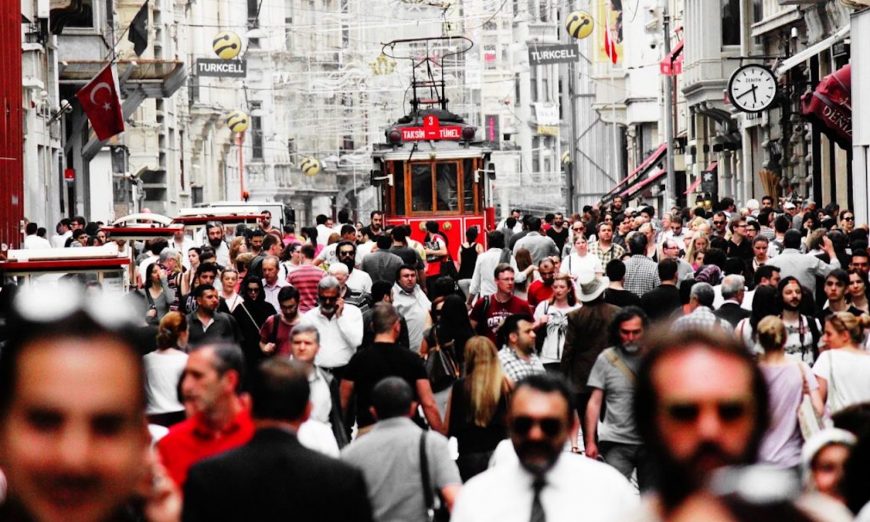Orhan Kemal Cengiz
Friday, May 4, 2007,
ISTANBUL – Turkish Daily news
A couple of weeks ago there was a large gathering at the Swedish Embassy in Ankara that hosted young Swedish diplomats who came to Turkey to broaden their perspectives and to gain some information about the country. The Crown Queen of Sweden was also among them. Because of this special guest, there were unusual security measures and the meeting was closed to the press. Representatives of Kaos GL (Association of Gay and Lesbian people), Başkent Women’s Platform and Human Rights Agenda Association (HRAA) had been invited by the Embassy to provide some information about their activities and to answer the questions of diplomats falling into their respective fields. I was also there representing HRAA.
The young diplomats were very eager to learn about Turkey and they kept asking a lot of interesting, thought-provoking questions. A question by a young lady and her reaction to the answer she received triggered a lot of ideas in my mind and sharpened my awareness about the different aspects of the problems of sexual minorities in Turkey. The question she raised was whether there was any group in Parliament who advocated gay rights and when she got the answer “no” she reacted with surprise. Her surprise was quite inspiring for me. Actually, I had never imagined a gay rights’ advocate group in Parliament before. Not evenin any “official” or “semi-official structure” in Turkey. Thoughts were running through my mind and I suddenly remembered a meeting I attended a couple of years ago. A group of lawyers (the most “liberal” ones) were discussing their own problems and policy matters in the bar structure that they were attached to. One of the participants, to show the diverse identities to which lawyers belonged, started to make reference to Kurds, Alevis, leftists, liberals, and Muslims as distinct identities. He also added “gays” to these groups. The remarks of the chairman of the group made me aware of how deeply a homophobic society we were. He invited this participant to withdraw his remarks, saying that claiming the existence of “gays” in the bar association was an insult to all lawyers.Of course, there were some lawyers who rejected this comment by the chairman but not in any enthusiastic or sharply criticizing manner.
I left the Embassy with these thoughts in my mind. A couple of days later, yet another “illuminating” thing occurred. To my surprise, the content of the gathering at the Embassy was leaked to the press and the reports were on the second and third pages of some newspapers. But the wording of the headline was “slightly” different from what really had been said there. One of the headlines read, “the Crown Queen asked if there were any gays in Parliament”. The “diplomat” turned into “queen” and the “gay rights activists” became “gay” themselves. Apparently, in the mind of the journalist, gay rights activists and being gay were identical things; or defending gay rights could not be possible unless you yourself were gay.
Prejudices towards sexual minorities are not unique to Turkeyand these “invisible” minorities are continuously harassed, humiliated, ignored and ill treated all over the world. However, there are some hopeful developments, too. A distinguished group of human rights experts from 25 countries with diverse backgrounds and expertise relevant to issues of human rights law unanimously adopted the Yogyakarta Principles on the Application of International Human Rights Law in relation to Sexual Orientation and Gender Identity.
Q & A
What are the Yogyakarta Principles?
The Yogyakarta Principles are a set of principles on the application of international human rights law in relation to sexual orientation and gender identity. The Principles affirm binding international legal standards with which all States must comply. Key human rights mechanisms of the United Nations have affirmed the obligation of states to ensure effective protection of all persons from discrimination based on sexual orientation or gender identity. However, the international response has been fragmented and inconsistent, creating the need for a consistent understanding of the comprehensive regime of international human rights law and its application to issues of sexual orientation and gender identity. The Yogyakarta Principles do this. The Yogyakarta Principles address the broad range of human rights standards and their application to issues of sexual orientation and gender identity. You can reach the full text of the principles at http://www.yogyakartaprinciples.org
Hopefully, they will be translated into Turkish and will be distributed to journalists, members of Parliament and so on.
See you next week.
http://www.turkishdailynews.com.tr/editorial.php?ed=orhan_cengiz

